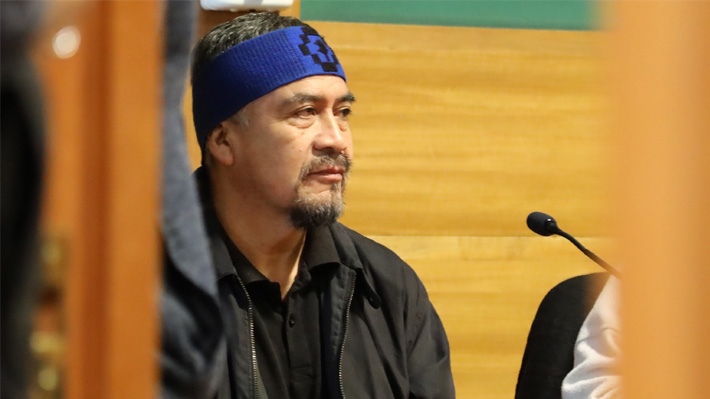- In the trial against the leader of the CAM, the Public Prosecutor's Office in La Araucanía referred evidence to other prosecutor's offices that could contribute to various investigations.
Cases already under investigation, which received new evidence revealed during the trial against Héctor Llaitul, as well as others opened based on evidence presented in this process, resulted in the 23-year prison sentence for the leader of the Arauco-Maleco Coordinating Group (CAM), announced on May 7.
Francisco Ljubetic, former regional prosecutor of La Araucanía and current vice-dean of Law at the Autonomous University, highlights that it is common for investigations of this magnitude to receive information from other cases and, in turn, provide evidence to those and other inquiries.
"For the trial against Héctor Llaitul, it was necessary to bring in open investigations and their evidence to incorporate them into this case, because we had to reference and substantiate a significant number of violent acts that followed his statements," he explains.
The former prosecutor adds that "from an investigative standpoint, all those cases remain open because they must also examine the actions of Héctor Llaitul and others who participated in the violent acts."
Ljubetic argues that "it is an interesting and virtuous condition that the Public Prosecutor's Office must internally share information, data, and evidence from one investigation that may be useful in another, and vice versa."
In this regard, during the trial against Héctor Llaitul, the former regional prosecutor of La Araucanía, Roberto Garrido, revealed that he had referred evidence to various prosecutor's offices that could aid other cases.
According to the former prosecutor, the wiretaps of the CAM leader's conversations with others include records before and after arson attacks. In the case against Héctor Llaitul, a violent land seizure, a timber theft, and an attack against police officers were tried, but regarding the State Security Law, what was proven was his apology for and incitement of violence during his interviews.
He also adds that "the series of events following his statements, in their specificity and independence, must be judged separately because they are consequences of Héctor Llaitul's calls to action, and whether he and others directly participated is what must be investigated."
Lawyer Rodrigo Ruiz, legal advisor to the Association of Forestry Contractors, a group affected by over 480 arson attacks, states that the evidence from the Héctor Llaitul case can be used in other cases, particularly where individuals have been formally charged but no oral trial—the crucial step—has taken place. In his view, "this evidence will be an important contribution from a probative standpoint to build stronger accusations and better reach a trial and eventual conviction."
Regarding the potential impact on cases involving arson attacks on forest operations—where he has provided legal support for complaints filed by victims—the professional notes that in the southern macrozone, less than 2% of those responsible for terrorist attacks are convicted. Therefore, evidence from the Héctor Llaitul trial could help increase that percentage.
Source:elmercurio.com







Comentarios (0)
No hay comentarios aún. ¡Sé el primero en comentar!
Deja un comentario